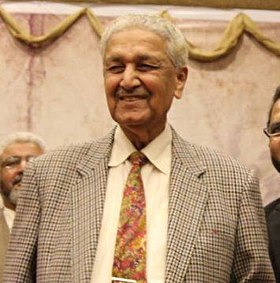- 0 Comments
part time jobs near me no experience
Introduction
No Experience? No Problem! Finding the Perfect Part-Time Job Near You
Starting out in the world of work can be daunting, especially if you lack experience. You might be searching for that ideal part-time job to boost your income or gain valuable skills, but worried about your lack of experience holding you back? Fear not! This guide is your roadmap to landing great part-time jobs nearby, even without years of experience on your resume.
The truth is, many excellent part-time jobs value enthusiasm and a willingness to learn. Whether you’re a student aiming for financial independence, a parent needing flexible hours, or simply looking to supplement your income, there’s an opportunity waiting for you.
This post will guide you through the world of experience-friendly part-time jobs. We’ll explore various options, from remote work to in-person gigs that match your schedule and interests. You’ll also learn tips for crafting a strong application, highlighting your transferable skills effectively, and overcoming the challenge of limited work history.
So, let go of your worries about experience and prepare to unlock your earning potential! Join us on this journey to find the perfect part-time job that leads to success, all while gaining valuable skills and experiences along the way. Get ready, because with the right approach, amazing opportunities await right in your neighborhood!
No Sweat! Landing Part-Time Jobs Near You (Even with No Experience)
For many job seekers starting out, the big question is often about experience – especially when it comes to finding part-time work. But fear not!
This guide empowers you with the knowledge to discover fantastic part-time gigs nearby, even if you’ve never worked before.
Here’s the exciting truth: many part-time employers value enthusiasm, a positive attitude, and a willingness to learn over years of experience. So, whether you’re balancing classes as a student, have flexible evenings as a parent, or simply want extra income, there’s an opportunity waiting for you.
This post delves into experience-friendly part-time jobs across various interests and schedules:
Remote Work Options:
Embrace flexibility with freelance writing/editing, virtual assistant roles, or online customer service.
In-Person Roles:
Enjoy a dynamic environment with customer service in retail or restaurants, delivery driving, or pet care.
Hidden Gems:
Explore unique opportunities like event staffing, data entry/transcription, or bookkeeping for small businesses.
Crafting a Winning Application (Even with No Experience):
Don’t let lack of experience hold you back! Follow these tips to shine:
Highlight Transferable Skills: Showcase skills from school, volunteer work, or hobbies like communication and problem-solving.
Show Enthusiasm: Express excitement about the job and eagerness to learn.
Tailor Your Resume & Cover Letter: Customize your application to match the job and demonstrate your research.
Emphasize Reliability: Display a strong work ethic and commitment to working evenings or weekends.
Additional Tips for Success:
Use Your Network: Inform friends, family, and mentors about your job search – they might have leads.
Explore Local Resources: Check community job boards, online filters for part-time jobs, or local business websites.
Reach Out Directly: Some businesses may have unadvertised openings, so don’t hesitate to inquire. Remember: Approach your job search positively and confidently. Dive into part-time opportunities, highlight your strengths, and show your willingness to grow. You’ll find amazing opportunities waiting for you right in your neighborhood. Get started on your journey to earning, learning, and thriving on your terms!
Unveiling Hidden Gems:
Your Guide to Part-Time Jobs (No Experience Needed!)
Finding the perfect part-time job can feel like a treasure hunt, especially when experience seems like a locked door. But fear not, fellow adventurer! This guide reveals hidden gems – exciting part-time opportunities near you that welcome individuals without any prior experience.
Forget About Experience Concerns:
Many employers value enthusiasm and a willingness to learn more than years listed on a resume. This opens doors for students, parents, or anyone looking to earn with a flexible schedule.
Exploring the Hidden Gems:
Here’s a peek at the exciting options that await:
Remote Opportunities: Dive into freelance writing/editing, virtual assistant roles (managing social media or scheduling appointments), or online customer service positions from the comfort of home. Social Settings: Enjoy dynamic environments? Explore customer service roles in retail or restaurants (with plenty of evening shifts!), delivery driving for services like DoorDash or Uber Eats, or dog walking/pet sitting for animal lovers.
Beyond the Ordinary: Think outside the box! Discover roles like event staff (working at concerts or conferences), remote data entry/transcription jobs in the evenings, or assisting with bookkeeping to gain valuable financial experience at small businesses.
Crafting a Standout Application (Even as a Beginner):
Don’t let lack of experience hold you back! Here’s how to make your application shine:
Showcase Transferable Skills: Highlight skills learned in school, volunteer work, or hobbies such as communication, teamwork, time management, and problem-solving.
Enthusiasm Wins Hearts: Express your excitement and eagerness to learn. Let your passion for the opportunity shine through!
Tailor Your Approach: Research the company and customize your resume and cover letter to highlight skills relevant to the job.
Demonstrate Reliability: Display a strong work ethic and commitment to working evenings or weekends, if needed.
Bonus Tips for Discovering Hidden Gems:
Network Effectively: Spread the word among friends, family, or former teachers/coaches – they might have surprising job leads.
Local Opportunities Shine Bright: Check out community job boards, online platforms like Indeed or Craigslist with “part-time” and “no experience” filters, or local company websites.
Direct Inquiry for Hidden Gems: Some businesses may not publicly advertise part-time positions but could be interested if you express interest.
Remember: With a positive attitude and the right strategy, you can unlock a wealth of opportunities! Explore the diverse world of part-time jobs, highlight your strengths, and demonstrate your eagerness to learn. You’ll be amazed at the hidden gems waiting for you right in your neighborhood. So, grab your enthusiasm (shovel) and this guide (map), and begin your journey to earning, learning, and growing – all on your own terms!
Unveiling Your Earning Potential:
A Simple Guide to Part-Time Jobs (No Experience Needed!)
Feeling the financial squeeze but concerned about your lack of experience? Don’t worry! This guide reveals how to find great part-time jobs near you, even if you’ve never worked before.
Experience Isn’t Everything:
The good news? Many employers value enthusiasm, willingness to learn, and a strong work ethic more than a long work history. Whether you’re a student, parent, or anyone looking to earn extra money, there’s a perfect opportunity waiting.
Exploring Your Options:
Here are some exciting categories to consider:
Remote Work Opportunities: Work from home! Try freelance writing/editing, virtual assistant roles (managing social media or scheduling appointments), or online customer service jobs.
In-Person Roles: Think about customer service in retail or restaurants (especially evening shifts!), delivery driving with DoorDash or Uber Eats, or pet sitting/dog walking if you love animals.
Hidden Gems: Explore event staff roles (helping at concerts or conferences), remote data entry/transcription work, or bookkeeping assistant positions at small businesses (great for financial experience).
Crafting a Strong Application (Even as a Beginner):
Highlight Your Skills: Consider skills from school, volunteering, or hobbies like communication, teamwork, time management, and problem-solving – employers love these!
Show Enthusiasm: Let them know you’re excited about the job and eager to learn.
Customize Your Resume/Cover Letter: Research the company and highlight skills that match the job.
Demonstrate Reliability: Show you’re dependable and willing to work evenings or weekends if needed.
Finding the Perfect Job:
Use Online Job Boards: Look for “part-time” and “no experience” filters on Indeed, Glassdoor, or Monster.
Check Company Websites: Visit the careers section of companies you’re interested in. Explore Local Opportunities: Check community job boards or ask friends and family for tips.
Don’t Hesitate to Reach Out:
Some businesses might have part-time openings they haven’t advertised – let them know you’re interested!
Remember: With a positive attitude and a proactive approach, you can find the ideal part-time job to boost your income and gain valuable skills. Start your journey to earning today!
Benefits :
Here are some of the main benefits of having a part-time job:
Financial Benefits:
Extra Income: Earn more money to meet financial goals or have additional spending money.
Financial Independence: For students and young adults, a part-time job can help them become financially independent and responsible.
Skills and Experience:
Skill Development: Gain important skills and experience in a specific field, which can lead to future career opportunities.
Building a Resume: Part-time jobs can enhance your resume, demonstrating your work ethic and relevant skills.
Schedule and Flexibility:
Work-Life Balance: Manage your studies, family commitments, or other responsibilities alongside a part-time job that fits your schedule.
Time Management: Learn effective time management skills by balancing work with other obligations. Personal Growth:
Boost in Confidence: Taking on new responsibilities and succeeding at work can boost your self-confidence and self-esteem.
Networking Opportunities: Meet new people, expand your professional network, and make connections in your chosen field.
Exploration and Interests:
Explore New Paths: Discover different career options or industries through part-time work to find what interests you most.
Apply Your Skills: Use your current skills and knowledge in a practical work setting.
Additional Benefits:
Develop Professionalism: Learn workplace etiquette, communication skills, and professionalism in a professional environment.
Sense of Achievement: Feel satisfaction from earning your own income and contributing to a team or organization. Overall, part-time jobs provide a great way to improve your finances, gain valuable skills, and explore your interests, all while maintaining a flexible schedule that fits your life.
Conclusion:
In conclusion, part-time jobs are now accessible to everyone, regardless of experience. With a positive attitude and a willingness to learn, you can find numerous opportunities nearby. Whether it’s flexible remote work or engaging in-person roles, there’s a fitting part-time job for each person.
Don’t let lack of experience deter you! Start by following the advice in this guide. Create a strong application, use your connections, and explore unconventional options. Remember, a part-time job isn’t just about earning money – it’s about developing skills, gaining experience, and securing your financial future.
Go out there, embrace the opportunity, and discover the ideal part-time job that leads you to success!
FAQs?
FAQs: Your Guide to Exploring Part-Time Jobs Without Experience
- What are the benefits of having a part-time job, even with no experience?
Boost your income: Earn extra money for your financial needs or daily expenses.
Gain valuable skills and experience: Develop skills like communication, teamwork, and time management.
Build your resume: Demonstrate your work ethic and relevant skills to future employers.
Enjoy flexibility: Manage work alongside studies, family commitments, or other responsibilities. Explore career paths: Discover new interests and potential career directions through part-time work. Improve time management: Learn to balance work and other obligations effectively.
Build confidence and self-esteem: Feel satisfaction from earning money and contributing to a team.
- What types of part-time jobs are available with no experience?
There’s a wide range! Here are some starting points:
Remote work: Freelance writing/editing, virtual assistant roles, online customer service.
In-person roles: Customer service (retail/restaurants), delivery driving, dog walking/pet sitting. Hidden opportunities: Event staff, data entry/transcription, bookkeeping assistant for small businesses.
- How can I find a part-time job near me with no experience?
Online job boards: Use filters for “part-time” and “no experience” on sites like Indeed, Glassdoor, or Monster.
Company websites: Visit the “careers” section of companies you’re interested in.
Local resources: Check community job boards, local newspapers, or ask friends/family for leads. Direct approach: Contact businesses directly, especially those that may not advertise part-time openings.
- How should I write my application for a part-time job with no experience?
Highlight transferable skills: Focus on skills from school, volunteer work, or hobbies that apply to the job. Express your excitement about the opportunity and your eagerness to learn.
Tailor your resume and cover letter: Customize your application to emphasize skills relevant to the position.
Emphasize reliability: Demonstrate a strong work ethic and readiness to work evenings or weekends if needed.
- What if I don’t have a strong network to find a part-time job?
Don’t worry! Utilize online platforms like LinkedIn to connect with businesses or monitor social media for job postings. Additionally, inform professors, teachers, or former employers that you’re seeking work – they may have unexpected leads.
Remember: With a positive attitude and proactive approach, you can discover the ideal part-time job to meet your financial goals and gain valuable experience. Happy job hunting!













